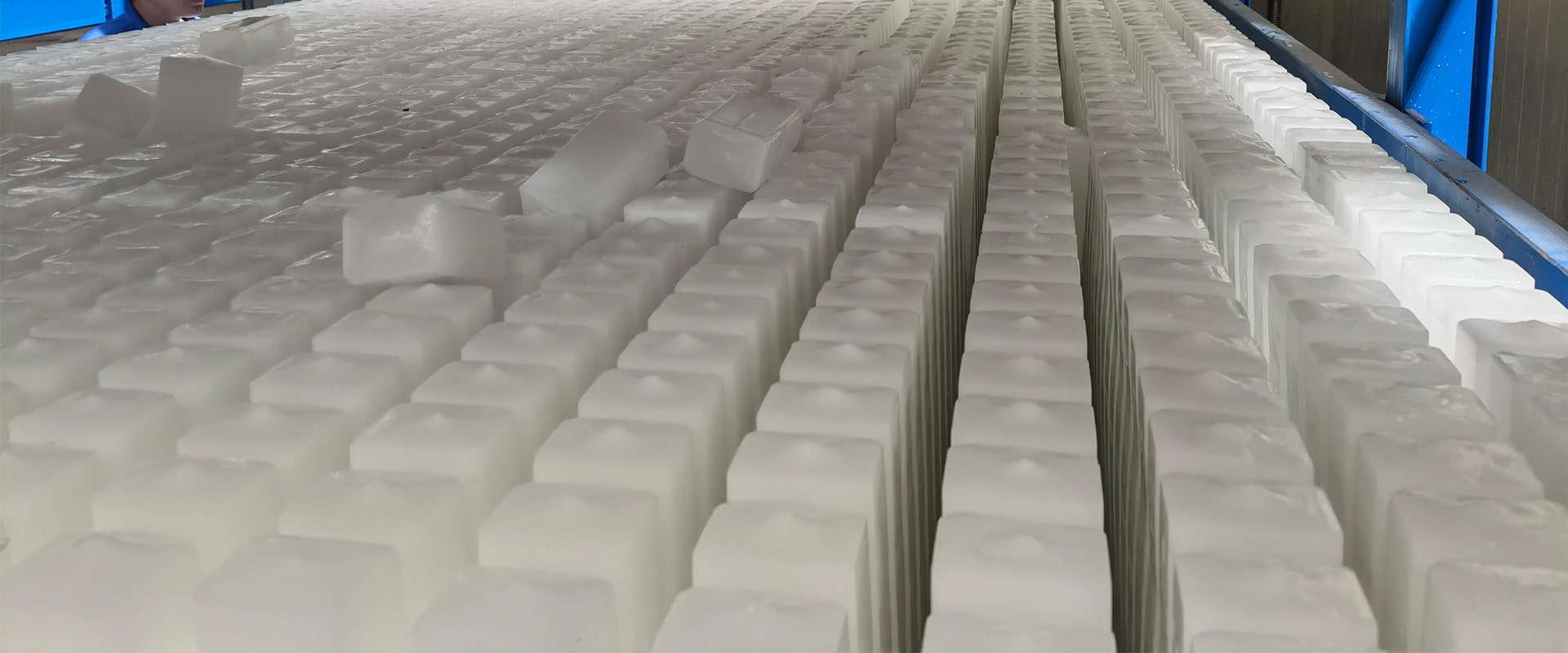 December 17, 2025
December 17, 2025


Block ice machines are indispensable in a multitude of industries, offering robust ice production for cooling, preservation, and various other applications. However, a common query among customers is why the daily ice making capacity and ice block making time of these machines are not constant but rather subject to change based on various factors. This blog aims to elucidate these factors and their impact on the ice block machine’s performance.
|
|
Ambient Temperature: | 20℃ |
| Water Inlet Temperature: | 16℃ | |
|
Cooling Water Flow Rate: (Apply to Cooling Mode - Water Cooling) |
0.25m³/h |
The ambient temperature exerts a significant influence on the daily capacity and ice-making time of a block ice machine. In regions with elevated ambient temperatures, such as the Middle East, where outdoor temperatures reach 50°C, the extended ice-making time is necessary. This extended timeframe may reduce the number of ice-making cycles per day and subsequently impacts the overall production capacity. Conversely, in regions with colder ambient temperatures, such as northern China during winter, the original ice-making time can be shortened, potentially increasing the number of ice-making cycles per day and exceeding the machine's standard capacity.
Customers may elect to reduce the standard ice-making time to conserve energy. However, this can result in incomplete freezing of the ice blocks, leading to a discrepancy from the theoretical capacity weight.
The water temperature is a pivotal factor in determining the ice-making time. A lower water temperature expedites the ice-making process. We estimate the ice-making time based on the water inlet temperature of 20℃, whereas at 30°C, the ice-making time may extend 30 minutes or more. Therefore, if the water temperature is lower than 20°C, the ice-making time will be shorter.
Regarding to water cooled ice machine, the cooling water flow rate significantly influences the ice-making time. According to the manufacturer’s specifications, the ice-making time is inversely proportional to the square root of the cooling water flow rate. For example, a flow rate of 0.20m³/h corresponds to a longer ice-making time compared to flow rate of 0.25m³/h. A lower flow rate will result in a longer ice-making time.
In summary, the daily capacity and ice-making time of a block ice machine are dynamic and influenced by various factors. By comprehending these determinants and their impact on the machine’s performance, customers can make informed decisions and optimize their ice production processes.

Our Contacts
Email: sales@baocharm.com
WhatsApp: +86 17663537579
Wechat: +86 17663537579
Working Hours: Mon ~ Sat 8:30 AM - 5:30 PM